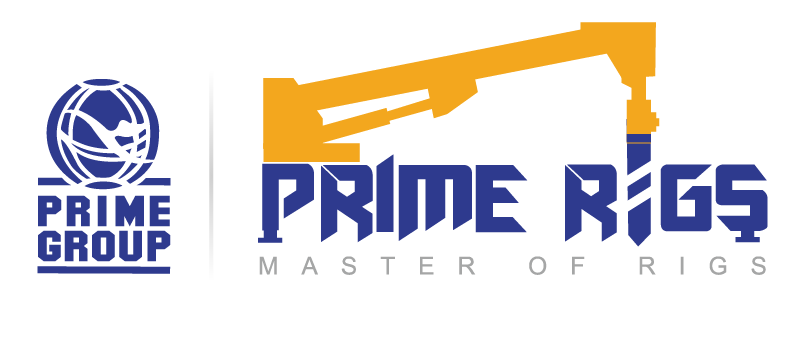
Borehole drilling is a dependable solution that South Africa, a nation renowned for its varied landscapes and sporadic water constraints, has discovered. A growing number of companies, farms, and households are adopting this technique. Let’s examine five main advantages of borehole drilling rigs and accessories in South Africa and how they are improving the country’s general well-being and water supply.
- Securing a Reliable Water Source
A reliable substitute for water shortages in a nation where they might be an urgent issue is borehole digging. South Africans may guarantee a consistent supply of water for their homes, farms, and businesses by accessing subterranean water sources. This dependability is especially important in arid regions or in places where the municipal water supply may fluctuate. In today’s changing environment, borehole drilling rigs provide individuals with a sense of water security and peace of mind by empowering them to take charge of their water requirements.
- Cost-Effective Water Solution
The long-term savings on borehole drilling equipment outweigh the initial cost, which may appear high. Once a borehole is dug, the price of getting water decreases significantly. Monthly costs can be lowered for South African families and companies by drastically reducing or even completely eliminating their dependency on municipal water. Modern drilling rigs and equipment also require less maintenance over time due to their longevity. This cost-effectiveness is especially alluring in a nation where financial factors are frequently quite important when making decisions.
- Environmentally Friendly Water Access
In South Africa, borehole drilling provides an environmentally sustainable method of obtaining water. Communities may lessen their reliance on large-scale water transportation systems—which frequently use a lot of energy—by making use of their local groundwater resources. The carbon footprint of the water supply is reduced by this concentrated sourcing. Furthermore, prudent use of boreholes can contribute to more sustainable management of water resources by preventing over-exploitation of subterranean aquifers. This environmental advantage fits in nicely with South Africa’s increasing emphasis on conservation and sustainable practices.
- Enhancing Agricultural Productivity
The use of borehole drilling technology has enormous potential benefits for South Africa’s agriculture industry. Even in areas where drought is a possibility, farmers can water their crops more successfully. This consistent supply of water makes it possible to plan crops more effectively and may even lengthen growing seasons. Farmers that have control over the water supply may better regulate crop yields and quality by scheduling irrigations more effectively. The significance of effective borehole drilling for farming in a nation where agriculture is essential to both food security and the economy cannot be emphasized.
- Boosting Property Value and Self-Sufficiency
In South Africa, adding a borehole to a property can greatly raise its market value. Particularly in locations where water is scarce, potential purchasers frequently consider a private water supply to be a significant asset. Boreholes have a sense of self-sufficiency that many South Africans find alluring, even beyond their monetary worth. In today’s uncertain world, having access to water outside of municipal systems offers a level of autonomy that is becoming more and more appreciated. This independence may be especially comforting when there is a drought or when there are infrastructural issues.
Conclusion
In South Africa, the uses of borehole drilling equipment supplier and related equipment go well beyond simply getting water. They provide a route to increased agricultural output, financial savings, environmental sustainability, and self-sufficiency. It is impossible to overestimate the contribution that borehole technology will make to the nation’s ongoing water-related problems.
Recent Post
- Frequent Used: Heavy Construction Equipment and Instruments
- What Type of Water Drilling Should You Choose?
- How To Choose The Perfect Drilling Rig To Buy?
- Tips For Selecting the Right Drilling Rig According to Your Need
- Water Well Drilling: Numerous Advantages
- How To Find Affordable And Reliable Water Well Drilling Rigs For Sale?
- Everything You Need to Know About Water Construction Rigs
- Water Drilling Rigs: Know The Different Types
- Refurbished Borehole Drilling Machine: Is It Worth The Purchase?
- Safety for the Construction Industry: Why Does it Matter?
- Milling Or Drilling: Which Is The Right Process To Choose?
- Choosing A Construction Truck Rigs Supplier Keeping Perfection In Mind
- Factors That Can Help You Select The Best Water Well Drilling Rig
- What Makes Drilling Rigs Different From Milling Rigs?
- Water Well Drilling Rig: All You Need to Know About It
- Do’s and Don’ts of Choosing the Right Rigs
- Underground Drilling Rigs: Features That Make Them Unique And Most Recommended
- What are construction drilling rigs? Why do companies need them?
- How do drilling companies help you with core drilling exploration?
- Best Portable Drilling Machines for Construction & Agriculture
- Best Mining Rigs for Hard Rock Drilling in 2026
- Mining Rig Cost vs Performance: How to Choose the Right Machine
- Future of Construction Equipment: 10 Technology Trends Shaping 2026
- How to Compare Drilling Machine Manufacturers Before Buying





